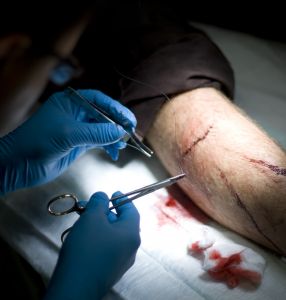- Free Consultation*: 210-787-5993 Tap Here to Call Us
Proving malpractice in Texas pharmaceutical drug and malpractice injury cases
In proving malpractice, a San Antonio Texas personal injury lawyer must be extremely careful in choosing his expert witnesses. Many a Texas pharmaceutical injury case or malpractice case has been dismissed for inadequate expert witnesses. One potential downfall is that a defendant physician must have his principles tested according to the basic teachings of the school to which he belongs. For example, an osteopathic surgeon is generally judged on principles from the osteopathic school of medicine. The rule is known as the Bowles Rule and it states that a Texas medical malpractice plaintiff must generally provide an expert against the defendant doctor from the same school of practice. There are exceptions to the Bowles Rule. For example, in Porter, a plaintiff suffered a serious spinal injury in Texas after a doctor negligently administered a spinal anesthetic. The defendant physician was from the osteopathic school of medicine. The plaintiff’s expert was from a medical, not osteopathic school. On appeal, the Texas Supreme Court cited exceptions to the Bowles rule where the particular field of medicine is equally developed in all fields of practice and where the use of particular medical devices are common in all fields of practice. In Porter, the Court concluded that both the medical and osteopathic practices utilized the same way of administering the anesthetic and medical experts could testify against osteopathic physicians.

In Borders, the Court excluded the testimony of plaintiff’s emergency physician expert testimony on ER treatment of a head injury which led to respiratory arrest. In the Texas wrongful death suit, the Court indicated that the ER expert was not competent to offer opinions that would counter the neurosurgeon experts for the defense. In another case, parents sued on behalf of their child who contracted AIDS from a tainted blood transfusion. The parents sued for failure to screen the blood. Although plaintiff’s expert held a degree in various disciplines including public health, he was not a trained doctor and did not consider himself an expert in blood banking or hematology. The plaintiff’s expert simply could not testify as to the standard of care in the blood bank industry. A plaintiff’s expert must have the knowledge, skill, experience, training, or education to give an expert opinion not only on the duty and standard of care, but also as to specific causation. Otherwise, many San Antonio and greater Texas personal injury cases run the risk of dismissal with prejudice.




